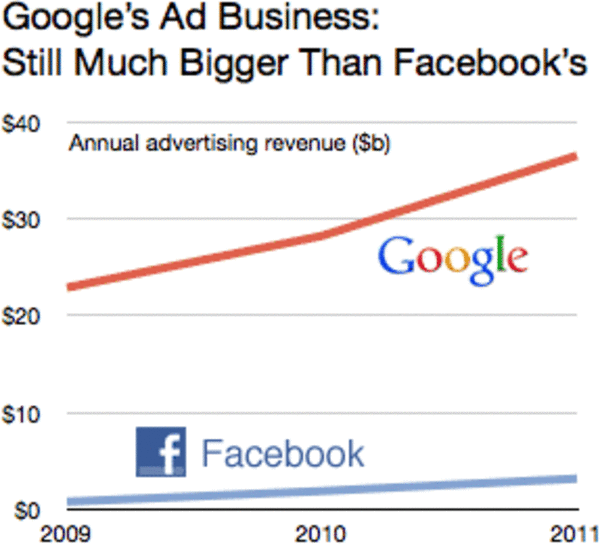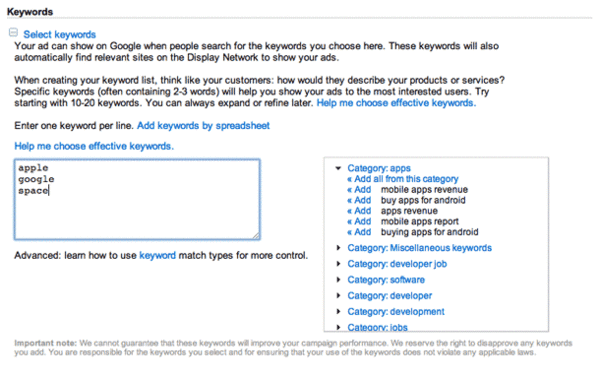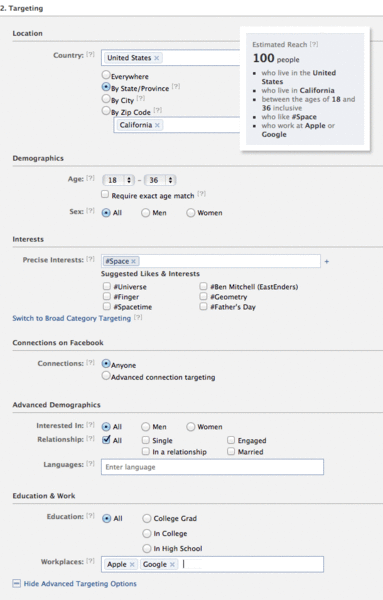Facebook knows who you are. Google knows what you’re looking for. Which piece of information is more valuable? The future of online advertising – and the ad-driven, free sites we use every day – hinges on the answer. On Friday, Facebook took its first step toward proving that the big prize is in who you are.
As the news website Inside Facebook first noticed, Facebook ads and Sponsored Stories now appear on Zynga.com looking just the way they would on Facebook itself. It’s the first outside site on which Facebook ads have appeared. The day Facebook rolls them out on the rest of the Web will be a dark one for Google.
Google dominates online ads today. It makes more profit in one quarter than Facebook generated in total revenue last year. That’s because Google’s ad business is built around search, the gateway to the Web. When people are looking for something, they go to Google to find it, creating an opportunity for Google to show valuable ads that are relevant to the user’s search.

Google’s indexing of the Web is so complete that it can also provide relevant ads on sites themselves. Website owners are happy to run Google’s AdSense ads, which help them generate revenue, letting Google match its most relevant advertisers to the content of the site.
But the key here is the definition of that word relevance. Ads only generate money if they’re relevant. As long as Google is the way we search for things, its definition of relevance matters. But if Facebook can make its ads more relevant than Google’s, even on sites other than its own, then Google is in trouble.
Google’s test of relevance is whether you’ve found what you’re looking for. Google knows where you are, what you’ve searched for before, and some things about your browsing history. If you use Gmail, it knows what you talk about there. It’s also starting to get better at understanding what your words mean. But those are just vague signals it can use to deduce things about you.
The best thing Google has to go on with its ads is what you’re searching for right now. If you’re searching for “cheapest hotels in Vegas,” that’s a pretty good clue. But not all our searches are so obviously about buying things. How does Google know what ads are relevant in that situation?
If Google knew more about you, who you are, what your family is like and your real likes and dislikes, it would be able to fill in the blanks. But it doesn’t. Try as it might with Google+, Google doesn’t yet have a good picture of the people on the Web.
Facebook has the clearest picture there is.
As Dan Frommer showed in April, a comparison between Facebook’s and Google’s ad creation tools speak volumes. Google’s tool just asks you to crank out keywords to help it match your ads to people’s searches:

But Facebook’s tools ask for rich, specific, personal details about the people you want your ad to reach. And Facebook knows these things about people because they willingly tell Facebook about themselves. In their profiles, relationship statuses and likes, Facebook’s users have given it a gold mine of advertising data.

For now, that only makes for relevant ads on Facebook itself. They’re good for revenue, but they’re not Google-level good. Even if the ads are personally relevant, people aren’t going on Facebook to shop (or click on ads). They’re going to talk to their friends.
If Facebook launches an off-site ad network, that will change. Even if people use Google to search for things, the sites they find could be showing Facebook ads, and those could potentially be far more relevant than Google’s AdSense ads. Suddenly, Google – an advertising company for all intents and purposes – will be delivering traffic into Facebook‘s advertisers’ laps, sucking life out of its own business.
Zynga Is Just a Prelude
The new ads on Zynga.com don’t represent the stealth launch of a Facebook Ad Network, at least according to official sources. In fact, as Josh Constine at TechCrunch reports, this agreement was laid out in Facebook’s S-1 documents before it went public, so it should come as no surprise. It’s a revenue-sharing agreement between Facebook and Zynga, its longtime partner in all manner of time-wasting games, and they both insist that’s all it is.
Facebook’s PR statement is this:
“We have had a close relationship with Zynga for a number of years and we think we can deliver value to Zynga and to the people playing their games by showing the same ads that they see on Facebook. We will not be showing ads on other sites at this time.” (emphasis added)
It may not be here “at this time,” but Facebook’s ability to track its logged-in users around the Web is well known. If, as industry watchers have long expected, Facebook launches an ad network for other sites, it would quickly upset the balance of power on the ad-supported Web.










